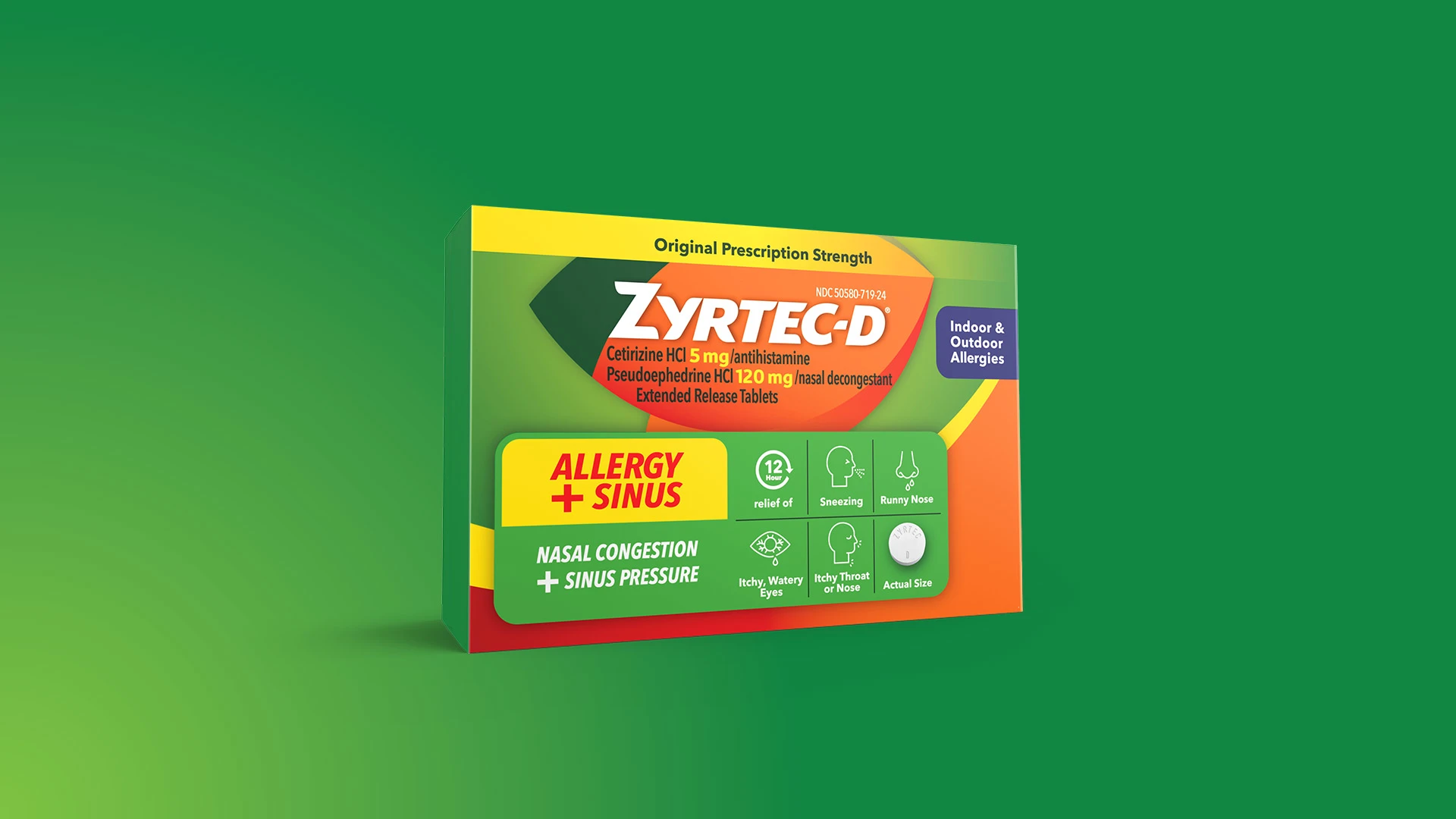What is a Decongestant?
A decongestant is a medication, typically taken orally or as a nasal spray, that helps relieve sinus and nasal congestion. Common decongestants include pseudoephedrine, phenylephrine, oxymetazoline, naphazoline and tetrahydrozoline.
How Do Decongestants Work for Allergies?
Allergies can trigger mucus build-up, as well as swelling and fluid in your nasal passages, which can lead to congestion and sinus pressure. Decongestants work by reducing this fluid and swelling, to clear nasal congestion and improve breathing.
What Do Decongestants Do?
To put the science simply, decongestants provide relief from congestion by reducing the swelling and fluid in your nasal passages.
To identify symptoms or determine the severity of your congestion, here are some signs to look for:
Stuffy, blocked nose
Heavy mucus production
Sinus pain in your face, or even jaw pain
Decongestants vs Antihistamines: What’s the Difference?
Although often confused, decongestants are different from antihistamines. They are both medications used to relieve allergy symptoms, but they work in different ways.
Antihistamines work by blocking the effects of histamine. Histamine is a chemical released by your body that triggers common symptoms like sneezing, watery eyes and runny nose. Decongestants on the other hand, work by narrowing the blood vessels in your nasal passages to reduce swelling and fluid.
Can You Take Antihistamines and Decongestants Together?
Yes. In fact, this is often recommended for people who have severe nasal congestion due to allergies.
ZYRTEC-D® contains both cetirizine (an antihistamine) and pseudoephedrine (a decongestant) so you benefit from both active ingredients. In this way, ZYRTEC-D® can help treat and effectively manage most major allergy symptoms, as well as reducing congestion and pressure in the nose and sinuses.
Decongestants, like ZYRTEC-D® and Sudafed, should not be taken together. Talk to your pharmacist or doctor if you have questions about drug interactions or existing medication.
When Should You Take an Antihistamine with a Decongestant?
You should take an antihistamine with a decongestant when you have severe nasal congestion that is caused by allergies.
When taken orally, in tablet form for example, ZYRTEC-D® should begin to work on allergy congestion in 30 minutes1. However individual experiences may vary. Just remember, it’s important not to take more than the recommended dose, even if it takes slightly longer for you to notice a reduction in your symptoms.
References
https://www.zyrtec.com/allergy-guide/understanding-allergies/symptoms/congestion
https://www.zyrtec.com/allergy-guide/understanding-allergies/treatment/what-is-zyrtec-d
Links to other parties’ articles and websites are provided for convenience only. Kenvue is not responsible for their content.




